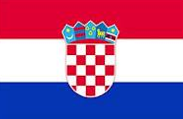At an event organized by the Permanent Mission of Croatia, panelists shared their experiences addressing women's role in creating sustainable development in post-conflict societies.
The event - 'Integrated Approach to Gender Dimension of Sustainable Development within the Context of Post-Conflict Recovery' - took place on the sidelines of the 69th UN General Assembly (UNGA) General Debate, on 26 September 2014, in New York, US.
 26 September 2014: At an event organized by the Permanent Mission of Croatia, panelists shared their experiences addressing women’s role in creating sustainable development in post-conflict societies. The event, titled ‘Integrated Approach to Gender Dimension of Sustainable Development within the Context of Post-Conflict Recovery,’ took place on the sidelines of the 69th UN General Assembly (UNGA) General Debate, on 26 September 2014, in New York, US.
26 September 2014: At an event organized by the Permanent Mission of Croatia, panelists shared their experiences addressing women’s role in creating sustainable development in post-conflict societies. The event, titled ‘Integrated Approach to Gender Dimension of Sustainable Development within the Context of Post-Conflict Recovery,’ took place on the sidelines of the 69th UN General Assembly (UNGA) General Debate, on 26 September 2014, in New York, US.
Vesna Pusić, Deputy Prime Minister, Croatia, noted that the topic of women’s role in sustainable development goes in and out of fashion, but always deserves attention. She said it is critical to invest in women in post-conflict societies, noting that women reinvest in building or re-building the basic fabric of society, and serve as anchors for reconstruction and future stability.
UN Women Executive Director, Phumzile Mlambo-Ngcuka, described the importance of reparations for women, such as access to land, credit and skills to support their empowerment. She said empowered women and communities are the best hope for sustainable development following a conflict. She underscored the post-2015 agenda as an opportunity to bring together gender equality, peace and development for a more just and sustainable future for all.
Hanna Tetteh, Minister of Foreign Affairs, Ghana, shared how her country has helped others to rebuild their society after conflicts. She said access to credit and entrepreneurial support programs must be available to enable women to earn a living. She underscored that how the world helps societies to rebuild themselves will determine whether there will be sustained peace.
Louise Mushikiwabo, Minister of Foreign Affairs and Cooperation, Rwanda, said Rwanda saw the worst that could happen to women, anywhere at any time, during the genocide. But during the past 20 years, she said, Rwanda has seen the best that could happen to women. She highlighted the country’s enduring spirit and moral energy in creating an environment that has enabled women to transform their lives and the lives of those around them. Mushikiwabo also emphasized the political vision of Rwanda’s male president, whom she said believes in women and leads by example.
Robaba Nayebi, Provincial Council, Afghan, identified unemployment as one of the main causes of insurgency in Afghanistan. She urged empowering Afghan women through financial investments. Fanika Janko, Croatian Women’s Society, described her experience in founding a civil society organization focused on women, including education and support for women in rural areas.
Susanna Hla Hla Soe, Karen Women’s Action Group (KWAG), Myanmar, highlighted actions that can help women overcome conflict situations and rebuild societies, including land compensation and investments. She recommended meaningful consultations with survivors before planning assistance and development projects and inclusive rehabilitation processes.
Vuyokazi Felicity Mahlati, International Women’s Forum, South Africa, recommended working at the “lowest” levels, including on the 20-year review of the Beijing Platform for Action and implementing the post-2015 agenda.
During a question-and-answer session, participants observed: the high percentage of male CEOs, suggesting the need for continued efforts to achieve gender equality; and the role of politicians and leaders in supporting equality and empowerment.
Pusić said the session had highlighted the importance of: education as an anti-war strategy; access to finance and psychological support for women in post-conflict societies; and consultation with survivors. [Event Webcast] [UN Women Listing of events during UNGA 69 High-level Week] [IISD RS Story on UNGA Statements, including Croatia]